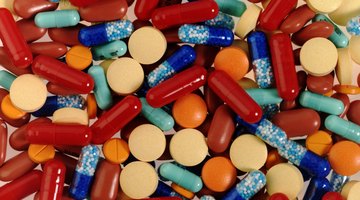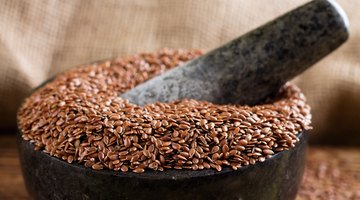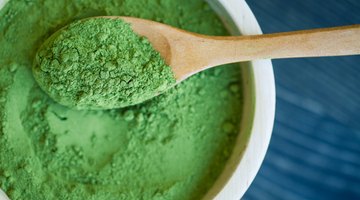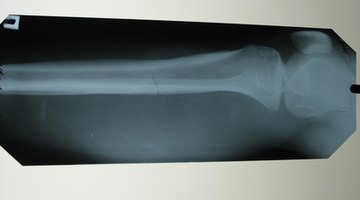Cholestasis Pregnancy Diet
Cholestasis is a liver condition that occurs only during pregnancy. The American Pregnancy Association notes that it is most common during the third trimester, and that it typically goes away within a few days after the mother gives birth. The most common symptom is severe itching, which can be extremely uncomfortable. Fortunately, certain dietary changes may help prevent or reduce the symptoms of cholestasis.
Background
Bile is produced in your liver and then stored in your gallbladder to help break down fats. Cholestasis occurs when pregnancy hormones slow or stop the flow of bile, causing it to build up and then spill into the bloodstream. Women who have previous liver damage, who have a mother or a sister who had cholestasis, or who are carrying multiples are at the highest risk for developing the condition. Cholestasis is diagnosed through a blood test. It is important to talk to your doctor if you experience any of the symptoms of cholestasis, including persistent itching, dark urine, light bowel movements, fatigue, loss of appetite or depression. Women who suffer from cholestasis need to be monitored closely to avoid risks to their developing babies.
Lecithin

Cinnamon and Liver Damage
Learn More
Lecithin is a type of unsaturated fat that is also referred to as a phospholipid. Your body produces some lecithin naturally, storing it in the bile in your liver to help metabolize fats. It is also found in the cell membranes of both animal- and plant-based foods. According to a study published in "Life Sciences" in June 2003, the consumption of lecithin may prevent the development of cholestasis. The study was conducted on rats and further research is needed, but the results appear to be promising.
Dietary Sources
Soy products, corn oil, safflower oil and peanuts are dietary sources of vegetable lecithin. Egg yolks, meat and dairy products are sources of animal lecithin. Either type of lecithin can help with cholestasis. To avoid consuming too much fat and cholesterol, choose lean meats and low or nonfat dairy products. MayoClinic.com notes that moderate dietary consumption of soy is safe during pregnancy. However, excessive amounts are not recommended, so try to consume a healthy mix of both animal and vegetable sources of lecithin.
Supplements

Can I Eat Seaweed When I'm Pregnant?
Learn More
Lecithin is available in supplement form. Since the effects of most supplements have not been studied on pregnant women, try to consume it from dietary sources. If you choose to go the supplement route, talk to your obstetrician prior to starting the supplements, and be sure to follow the dosing instructions carefully.











